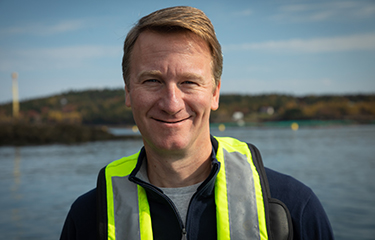The Washington Supreme Court has sided with Cooke Aquaculture in a unanimous 9-0 ruling that upholds the company’s fish farming permits in the state.
The lawsuit has its origins in a five-year permit that the Washington Department of Fish and Wildlife (WDFW) granted to Cooke in January 2020, allowing the company to farm steelhead trout in Puget Sound and the Salish Sea. Soon after the permit was granted, a consortium of conservation and environmental groups including the Wild Fish Conservancy (WFC) filed a lawsuit challenging the permit, claiming the department was allowing the farms without fulling considering what the impacts would be on water quality in the surrounding areas.
The lawsuit initially failed, but was appealed to the Washington Supreme Court in November 2020. Now, that court has found that the reasoning for the original permit was sound.
“After careful review of the record, WDFW’s justification report, mitigating provision requirements, and concerns raised by the WFC, we conclude WDFW evaluated the relevant environmental factors sufficiently to constitute prima facie compliance with the [State Environmental Policy Act],” the court’s opinion stated. “Therefore, WDFW’s threshold determination was not clearly erroneous.”
“We affirm the trial court’s order and uphold the steelhead permit,” it said.
The ruling is a victory for Cooke Aquaculture and the Jamestown S’Klallam Tribe, which announced a joint venture with Cooke Aquaculture Pacific in 2019 to rear native steelhead trout in the area. The joint venture formed Salish Fish LLC, a unique partnership of the two groups based in Port Angeles, Washington.
“The Tribe has two interwoven goals in everything we do – to be stewards of the environment in protecting the unique ecosystems of our homelands and the Salish Sea and continue to gather our treaty resources to fund programs and services for our tribal citizens,” Jamestown S’Klallam Tribe Chairman and CEO W. Ron Allen said in a release. Aquaculture allows us to utilize best practices in protecting the environment while continuing our traditional industries growing and gathering marine-based resources.”
Salish Fish was officially launched in 2021 and is currently moving forward with its plans to stock its ocean fish farm in Port Angeles harbor – essentially representing a reboot of Cooke Aquaculture’s operations in the region. The company originally farmed Atlantic salmon in the area, until an escape at the company’s farm near Cypress Island led to a political push that resulted with a statewide ban on Atlantic salmon farming.
The Washington Supreme Court ruling clears the way for Salish Fish to begin aquaculture in the area once again.
“This ... Supreme Court opinion lays to rest the array of disinformation about marine aquaculture being irresponsibly circulated by activist groups,” Cooke Aquaculture Pacific Vice President of Public Relations Joel Richardson said. “The United Nations General Assembly has declared 2022 the International Year of Artisanal Fisheries and Aquaculture (IYAFA 2022) for a reason – because fish farming and other forms of aquaculture are the most environmentally sustainable forms of protein production and can help solve world hunger.”
The Center for Biological Diversity – one of the environmental groups involved in the lawsuit – said they were "disappointed" by the ruling.
“This decision is a travesty for Puget Sound water quality and endangered steelhead, salmon and orcas,” Center for Biological Diversity Attorney Sophia Ressler told SeafoodSource. “Fish farms are dirty and unpopular. I’m deeply disappointed the court has greenlighted Cooke’s terrible aquaculture operation.”
Aquaculture groups, however, like hte Northwest Aquaculture Alliance – a group backing commercial-scale aquaculture endeavors in the U.S. Pacific Northwest – called the opinion by the court “a clear victory for science.”
“As an industry, we are heartened to see a decision that essentially normalizes fish farming in Washington. It has taken many years and countless scientific reports to get to this place, and we are heartened as an industry that we can finally move forward with some of our Blue Economy initiatives,” NWAA President Jim Parsons said in a release. “We could not be more pleased, not just on behalf of Cooke Aquaculture Pacific, but also for the potential implications for marine aquaculture producers here and in other regions. We view this court opinion as a victory for the future of aquatic food production – and a giant leap forward for food security.”
Photo courtesy of Cooke Aquaculture







